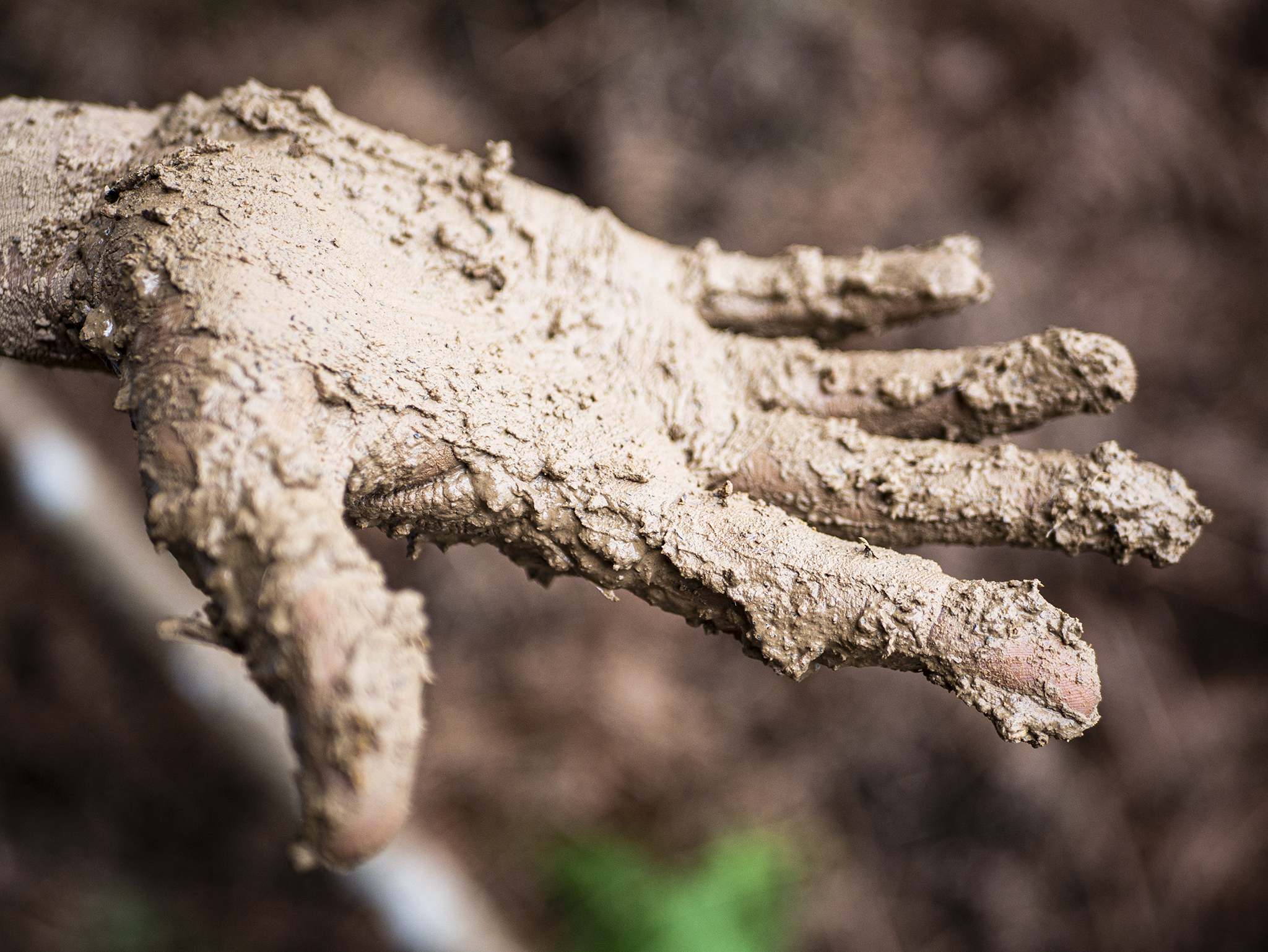A visit to a permaculture project sends a simple message – slow down
Running water, constant electricity, gas stoves, flushing toilets. These are some of the luxuries that many of us in the West have come to believe we cannot live without.
We tend to associate their absence with poverty, with suffering, perhaps even with failure. And while there are certainly places in our world where the lack of these comforts is correlated with hardship, a growing number of people are adopting this lifestyle by choice, and living with contentedness and fulfilment in doing so.
Recently, I had the pleasure of spending a week at Bosque Fluir, a permaculture project on the outskirts of the town of Sauce, in the Amazonian jungles of northeast Peru. As I received a tour of the property from Diego, the project’s founder, I was filled with a curious mix of excitement and apprehension. I felt like I’d signed up for a journey back in time, to the period when Homo sapiens was in the process of transitioning from hunter-gatherer to agriculturalist (with the useful addition of solar panels and patchy mobile signal). I was concerned about how I would adapt to basic changes, like needing to collect and cut wood in order to cook, how to preserve food without refrigeration, and how to stop myself smelling like an ogre by the end of a week without running water. But as I was shown the waterfall which doubles as a shower, informed about the property’s impressive biodiversity, and dropped off at my treehouse – yeah, my room was an actual treehouse – the excitement started to well and truly overwhelm the apprehension.

The goal of Diego’s project is to live as simply and sustainably as possible off the land, whilst also connecting with the local community, and welcoming volunteers from all over the world to be a part of Bosque Fluir. The property consists of six hectares, three of which are jungle, two are farmland, and one is living quarters – with considerable overlap between these regions.
A stay at Bosque Fluir costs only 70 soles per week (~US$18), which covers the things that aren’t able to be provided by the farm. You can also expect to work for around three to four hours per day while you are there. However, the rest of the time can be spent enjoying the jungle.
Rainforest walks can uncover toucans, monkeys and if you’re lucky, perhaps even a sloth, and the hike up to the lookout provides stunning views of Laguna Azul – Sauce’s main attraction. Alternatively, the ‘lounge room’ has hammocks and couches for an afternoon nap, and the coffee table is adorned by a small library. Its titles include The Secret Life of Trees by the German ecologist Peter Wohlleben, Don Miguel Ruiz’s spiritualistic self-help sequel The Fifth Agreement, and the wanderer’s bible – Jon Krakauer’s Into the Wild, which I devoured within a few days of being at Bosque Fluir.
This was actually an interesting phenomenon that occurred whilst staying at the property. As a child, I had been a veracious reader, but over the years I’d seemed to have lost my ability to read for hours on end. In the relatively distraction-free environment of Bosque Fluir, however, this ability suddenly returned – and I typically spent my afternoons cocooned in a hammock, with my nose buried in a good book (while my evenings were of course spent traipsing through the jungle looking for spiders and snakes).
One night, I was awoken by distant lightning and thunder around midnight, my treehouse gently swaying in the increasing wind. I spent around half an hour watching the flashes draw closer, as a fanciful flock of fireflies twinkled among the treetops. I sat mesmerised by them as the rain began to fall and the branches began to creak, before remembering that I was ten metres off the ground in a hand-made habitation. “What happens if there’s a storm and I’m in the treehouse?” I recalled asking earlier in the week. Diego had just laughed and said, “That’ll be an adventure.”
I decided to move down to ground level for the rest of the evening.



Unsurprisingly, Bosque Fluir’s founder presents as the quintessential hippy-type. Diego is typically barefoot, wears baggy clothes, and he has a single dreadlock that trickles down his back – a tail towing the line between pony and rat. He has an aura of warmth, calmness and tranquility, as if moving on a slightly slower timescale compared to the rest of humanity.
However, as I get to know him, he quickly dispels some of the other assumptions I had pre-emptively made about him. He confidently recites facts from recent IPCC reports, discusses current political issues with nuance and consideration, and gives a summary of human history that would make Yuval Noah Harari proud. His deep knowledge of the surrounding flora and fauna suggests that I am speaking with a life-long learner – a lover of science, knowledge and truth, with an appreciation of the deeper beauty that lies beneath these concepts.
On my final day at Bosque Fluir, as the morning sun was breaking through the trees and illuminating the small plume of smoke gently rising from the stove cooker, I sat down with Diego to discuss the permaculture movement, and its potential role in ameliorating our society’s environmental crises.
Heading into the conversation, I’d certainly enjoyed my time at Bosque Fluir, but I remained sceptical of permaculture more broadly. It felt like an escape from, rather than a solution to, the challenges facing our world – a halfway point between conservation and agriculture that seemed to not quite accomplish either goal adequately. The property unquestionably felt like you were living in nature, but there was a noticeable lack of larger fauna compared to protected areas in the region. Monkeys, birds, even frogs and snakes, just weren’t found in the same abundance – likely due to the presence of cats, dogs and livestock on the property and the surrounding farms.




I began by asking Diego to give an overview of what permaculture is for those who may not have heard of it before. He explains that, despite its many definitions, permaculture “is about having a systemic way of thinking where you can recognise the patterns of nature and how the ecosystem works, and understand that it has an evolution much bigger than humans.” This ecosystem works perfectly, Diego argues. “Every species has their role in it, and what permaculture wants is to get closer to that ecosystem as humans and understand our role in it.”
“We start with the design principles of nature,” he continues. “We copy, we imitate, and we go with the flow… We don’t go against it.” The problem, he claims, is that modern society has separated itself from nature, to the point that we no longer consider ourselves part of that ecosystem. “It’s very anthropocentric, and we really want to change that paradigm and create a healthier relationship with our environment, with ourselves, and with our societies.”
I’d seen first-hand the kind of ‘imitation’ that Diego had referred to. Over the course of my time at Bosque Fluir we’d been constructing mud walls for an outdoor bathroom that had been built out of bamboo. Dirt was combined with water, grass and sand to create a strong and sustainable building material. Naturally, the walls weren’t as durable as those that we might be used to – but that was the point. Diego wants his constructions to be part of, not separate from, the surrounding environment, and he wants them to have little to no long-term impact on his small patch of the planet.
His desires are of course backed up by science as well. In a presentation on permaculture to his community at a local café one evening, Diego refers to a Guardian article on the impact of modern building methods, which highlights that concrete is responsible for up to 8% of global CO2 emissions. It emphasises that if concrete was a country, it would be surpassed only by the US and China in terms of its environmental impact.


But Diego’s mission goes beyond environmentalism and enters the realm of philosophy and politics as well. His ideas push back hard against conventional notions of Western individualism and consumerism. Reflecting on humanity’s transition from nomad to agriculturalist, Diego notes two key trends. Firstly, he explains that as humans stopped moving itinerantly, some of us inadvertently ended up on more productive lands than others, and when food is distributed unfairly within this kind of system, it leads to inequality. “After centuries of that, some people were able to collect more food, so they could have workers or slaves, and inequality kept growing.” Secondly, he notes a change in perspective regarding the place of humans within nature. “We started separating humans from nature and thinking that we need to understand how nature works in order to take advantage of her, to create a more comfortable life, to dominate.” Diego argues that this focus on domination has caused a lot of hurt throughout human history, and that we are still seeing its consequences today. “It’s a culture of egocentrism. It’s not taking care of others, and it’s not taking care of the environment.”
A desire to reduce inequality and dismantle this ‘culture of egocentrism’ lies at the heart of Bosque Fluir, but Diego is no armchair philosopher. Since arriving in Sauce, he’s been working hard to integrate himself and his ideas into his community. He’s the secretary of his neighbourhood, and contributes to a wide variety of local projects.
Bosque Fluir is currently around 50-60% self-sufficient, Diego explains, “But my aim is not to be 100%. I really want to work with my neighbours, to share with them, to have this trade. The aim of Bosque Fluir is not to create a bubble.” Diego’s long-term goal is to work with his community to create a kind of ecovillage, and he encourages them to learn from the mistakes that others have made. “We can watch how other towns have tried to make things more industrial, more agricultural, and now things are looking worse – their soils could be dead, or parents are working too much and the children are alone.”




But while his local community remains Diego’s top priority, there is undoubtedly a global perspective incorporated into Bosque Fluir’s mission as well. During the week I spent there, I met travellers from Spain, Japan, Chile and Germany, all eager to learn from and experience the type of living that Diego was practicing. “Most of the volunteers come from other countries,” he notes, “and I feel like I’m planting seeds with them. When they go back, they know that they can have a simple life and be happy with that, and they also meet other wonderful people who are thinking in the same way as them.”
Diego concludes our conversation by reflecting upon the existential challenges facing humanity in the near future. “We need to be prepared,” he says, beginning with the macro level. “Ideally, we should start understanding now that we need to stop burning fossil fuels, that we need to stop industrial agriculture, that coloniser countries need to help the countries that were exploited. We need to create some balance and find resilient solutions.” This focus on balance and resilience also forms the basis of the solutions that Diego advocates for at the personal level. “As soon as we can, we probably need a lower consumption of energy,” he explains. “Also, less work – we don’t need to work eight hours a day and not have time for ourselves, for our families, for our communities.” Needing to wrap up the conversation – Diego was on his way to volunteer at the local school that morning – he concludes with a message that is both simple and challenging: “There are many things that we should change and re-think. Re-think everything. Keep the things that you feel are creating a better future and stop practicing the stuff that is not doing that.”


Ultimately, Diego’s version of permaculture definitely isn’t a one-size-fits-all solution to the challenges facing our planet – it’s not supposed to be – but I still believe it’s a way of life that everyone should experience at least once. While we may not need to know how to build a mud hut or cook on a woodfire in our modern age, a stay at somewhere like Bosque Fluir teaches us something more valuable. It demonstrates just how simply we are able to live if we set our minds to it, and that this mode of existence very often provides more joy and fulfillment than the alternative.
If we are to seriously tackle ecological collapse and inequality as a global community, the reality is that life in wealthy, Western countries is going to need to dramatically slow down. Plainly, our current levels of consumption are monstrously unsustainable, and rather than our current world where the rising middle classes of developing nations aspire to live like ‘us’, it is much more likely that ‘we’ will need to learn to live like ‘them’. The challenge is going to be how to do this in a manner that retains the most valuable aspects of human existence, and permaculture is just one of the ways that this can be achieved.


